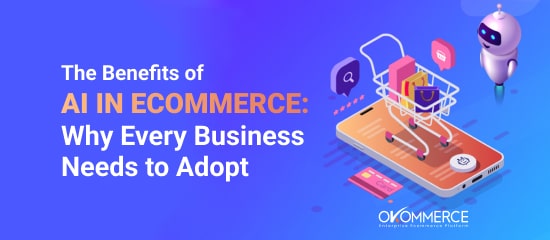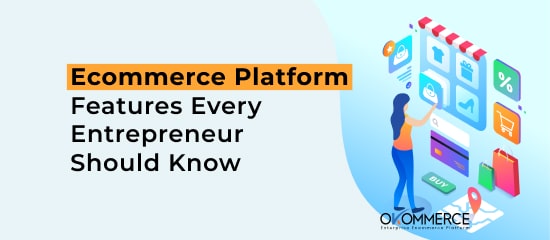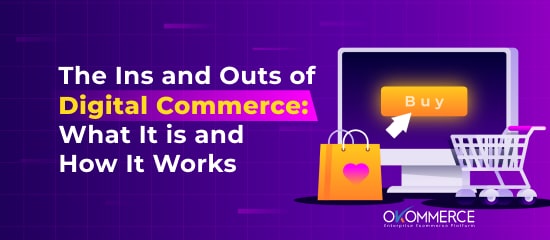How a Customizable eCommerce Platform Can Help You Stand Out in a Crowded Market
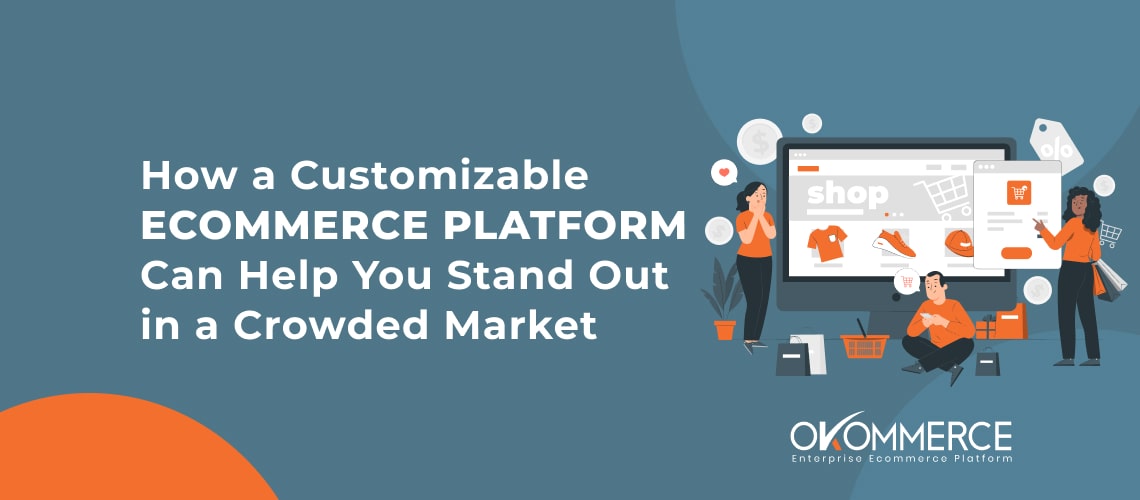
In today's digital age, eCommerce businesses are a dime a dozen. With so many online stores vying for customers' attention, it can be challenging to stand out in a crowded market. That's why having a customizable eCommerce platform is critical for businesses looking to differentiate themselves and succeed online. In this blog, we'll explore how a customizable eCommerce platform can help you stand out in a crowded market and the benefits it offers for your business.
Customizable eCommerce Platforms: An Overview
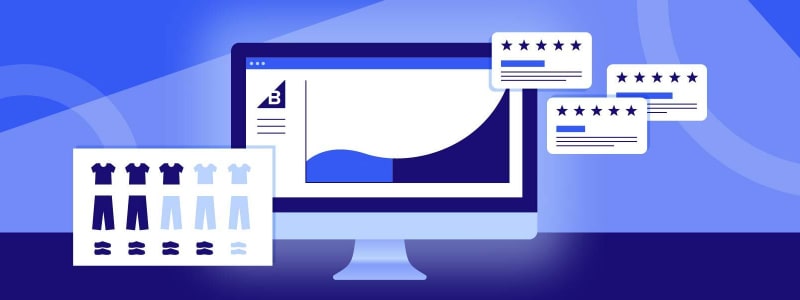
Before we dive into the benefits of a customizable eCommerce platform, let's first define what it is. A customizable eCommerce platform is an online platform that allows businesses to create an eCommerce website tailored to their unique needs and preferences. Customizable platforms offer a range of features and tools that businesses can use to create a user-friendly and engaging online store that reflects their brand identity.
One of the primary benefits of a customizable eCommerce platform is that it enables businesses to differentiate themselves from their competitors. With a customizable platform, businesses can create a unique and personalized shopping experience for their customers that reflects their brand's values and personality. By standing out in a crowded market, businesses can attract and retain customers and increase their revenue and profitability.
Why Choose A Customizable eCommerce Platform

There are several reasons why someone might choose a customizable eCommerce platform for their online business. Here are some of the key benefits:
Tailored to your Specific Needs: With a customizable eCommerce platform, you can tailor your online store to meet your unique needs and requirements. You can choose which features and functionality you need, and customize the design to match your brand identity.
Scalability: A customizable eCommerce platform allows you to easily scale your business as it grows. You can add new products, services, and features without having to switch to a new platform.
Competitive advantage: By customizing your eCommerce platform, you can create a unique online shopping experience for your customers that sets you apart from your competitors.
Flexibility: With a customizable eCommerce platform, you have more flexibility to make changes and updates to your online store as needed. This allows you to adapt to changing market conditions and customer needs more quickly.
Cost-effectiveness: A customizable eCommerce platform can be more cost-effective in the long run, as you can avoid paying for features you don't need and only pay for what you use.
Difference Between Non-Customizable and Customizable eCommerce

Non-customizable eCommerce platforms offer a standardized set of features and functionality that are designed to work for a wide range of businesses. These platforms are typically easy to set up and use, but they may not be able to meet the specific needs of every business. Non-customizable eCommerce platforms are a good option for businesses with simple needs or those who want to get up and running quickly without a lot of customization.
Customizable eCommerce platforms, on the other hand, offer more flexibility and control over the design, features, and functionality of your online store. These platforms can be tailored to meet the unique needs of your business, and they can help you create a more personalized shopping experience for your customers. Customizable eCommerce platforms are a good option for businesses that require more advanced features, have complex requirements, or want to create a truly unique online store.
In general, the choice between a customizable and non-customizable eCommerce platform will depend on the specific needs of your business. If you are just getting started with eCommerce and need a simple solution, a non-customizable platform may be the best choice. If you require more advanced features or want to create a truly unique online store, a customizable platform may be the way to go.
Which Kind of eCommerce Platform Is Preferable?
There is no one-size-fits-all answer to which kind of eCommerce platform is preferable because it depends on the specific needs and goals of your business. Here are some factors to consider when deciding between a non-customizable and customizable eCommerce platform:
Budget: If you have a limited budget, a non-customizable eCommerce platform may be the best option as they tend to have lower upfront costs.
Time: If you need to get your online store up and running quickly, a non-customizable platform may be the best choice as they tend to have a faster setup time.
Business needs: If your business has unique requirements or you need advanced features, a customizable eCommerce platform may be the better choice as they offer more flexibility and customization options.
Scalability: If you plan on growing your online store over time, a customizable eCommerce platform may be the better choice as they offer more scalability and can adapt to your changing business needs.
Branding: If your brand identity is important to you and you want to create a unique online shopping experience for your customers, a customizable eCommerce platform may be the better choice as they offer more control over the design and layout of your online store.
Difference Between Customized Ecommerce Platform and Personalized Ecommerce Platform
Customized eCommerce platforms and personalized eCommerce platforms are similar in that they both involve tailoring an eCommerce experience to meet the needs of a particular customer or group of customers. However, there is a subtle difference between the two terms.
Customized eCommerce platforms refer to platforms that have been modified or adapted to meet the specific requirements of a particular business. This may involve customizing the platform's features and functionalities, design and layout, payment and shipping options, and other aspects of the platform to meet the unique needs of a particular business. For example, a customized eCommerce platform may have a custom checkout process that is tailored to a business's specific needs.
On the other hand, a personalized eCommerce platform refers to platforms that use data and analytics to create a unique shopping experience for individual customers. This may involve tracking a customer's browsing behavior, purchase history, and other data to create a personalized product offering, recommendations, and promotions. For example, a personalized eCommerce platform may suggest products to a customer based on their previous purchase history or search history.
In summary, customized eCommerce platforms are tailored to the unique needs of a particular business, while personalized eCommerce platforms use data and analytics to create a unique shopping experience for individual customers.
How Customized Ecommerce Platform Can Improve Conversions
In today's highly competitive eCommerce landscape, businesses are always looking for ways to improve their conversion rates and boost their bottom line. One effective way to achieve this is by using a customized eCommerce platform.
A customized eCommerce platform offers businesses the ability to tailor their online store to their unique needs and requirements. By customizing the design, features, and functionality of their online store, businesses can create a more personalized shopping experience for their customers, which can lead to increased engagement, loyalty, and ultimately, conversions.
A customized eCommerce platform can improve conversions in several ways:
1. Enhanced User Experience
A customized eCommerce platform can provide a more intuitive and user-friendly shopping experience for customers. By streamlining the checkout process and making it easier for customers to find what they're looking for, businesses can reduce cart abandonment rates and increase conversions.
2. Personalization
A customized eCommerce platform can provide personalized recommendations and product suggestions based on the customer's browsing and purchase history. By offering personalized experiences, businesses can increase engagement and a higher likelihood of making a purchase.
3. Branding and Design
A customized eCommerce platform allows businesses to create a unique and memorable brand experience for their customers. By using custom design elements and visual branding, businesses can create a more cohesive and immersive shopping experience that builds trust and credibility with their customers.
4. Advanced Features
A customized eCommerce platform can include advanced features such as product customization, live chat support, and social proof elements that can improve customer engagement and increase conversions.
5. Mobile Optimization
A customized eCommerce platform can be optimized for mobile devices, which is becoming increasingly important as more and more consumers shop on their smartphones and tablets. By providing a seamless mobile shopping experience, businesses can increase conversions and improve customer satisfaction.
Customizable Ecommerce Platform Optimize Processes
Customizable eCommerce platforms can optimize processes by offering features and functionalities that meet the unique needs of a business. Here are some ways in which customizable eCommerce platforms can optimize processes:
- Customized Product Catalog: Customizable eCommerce platforms allow businesses to create a product catalog that fits their unique product offerings. This feature can streamline the process of managing products and make it easier for customers to find what they are looking for.
- Customizable Checkout Process: Customizable eCommerce platforms can optimize the checkout process by allowing businesses to customize it to their specific needs. This can include offering different payment options, creating custom fields for customers to fill out, and integrating with different shipping and fulfillment providers.
- Automated Order Management: Customizable eCommerce platforms can optimize the order management process by automating tasks such as order processing, inventory management, and shipping notifications. This can help businesses save time and reduce errors.
- Advanced Reporting and Analytics: Customizable eCommerce platforms can provide businesses with advanced reporting and analytics capabilities. This can include real-time sales tracking, customer behavior analysis, and inventory management reports, which can help businesses make data-driven decisions and optimize their operations.
- Customizable Marketing and Promotions: Customizable eCommerce platforms can optimize marketing and promotion processes by allowing businesses to create custom campaigns and offers that are tailored to their specific customer base. This can help businesses increase sales and customer loyalty.
How Customizable eCommerce Platform help Integrate Your Line of Business Applications
A customizable eCommerce platform can help integrate your line of business applications by providing API (Application Programming Interface) access and integration capabilities. This allows businesses to connect their eCommerce platform with other business applications such as CRM, ERP, and accounting software. Here are some ways a customizable eCommerce platform can help integrate your line of business applications:
- API Access: A customizable eCommerce platform should offer API access that allows businesses to connect their eCommerce platform with other business applications. APIs provide a standard way for different applications to communicate and exchange data, allowing businesses to integrate their eCommerce platform with other business applications.
- Automated Data Syncing: A customizable eCommerce platform should allow businesses to automate data syncing between their eCommerce platform and other business applications. This can help businesses avoid manual data entry and ensure that data is consistent and up-to-date across all applications.
- Custom Integrations: A customizable eCommerce platform should allow businesses to create custom integrations that meet their specific business needs. This can include integrating with custom applications or specific third-party applications that are not natively supported by the eCommerce platform.
- Streamlined Workflows: By integrating their line of business applications with their eCommerce platform, businesses can streamline their workflows and reduce manual data entry. This can help businesses save time, reduce errors, and improve overall efficiency.
- Better Insights: By integrating their line of business applications with their eCommerce platform, businesses can gain better insights into their operations and customers. This can help businesses make more informed decisions and improve their overall business performance.
How Okommerce can help eCommerce Entrepreneurs

OKOMMERCE is an enterprise ecommerce platform made for large scale business to meet its demanding requirements. Okommerce can help eCommerce entrepreneurs by providing them with a customizable eCommerce platform that is easy to use and manage. With an easy-to-use interface, entrepreneurs can quickly set up their online store and start selling their products or services. Okommerce also offers Cloud Based eCommerce Solutions with various features such as customizable product catalogs, personalized shopping experiences, and SEO optimization to help entrepreneurs optimize their online store and improve their sales. In addition, Okommerce provides tools for inventory management, order fulfillment, and payment processing, which can help entrepreneurs streamline their operations and focus on growing their business. With these features, Okommerce can help eCommerce entrepreneurs build a successful online business and compete effectively in the crowded eCommerce marketplace.

